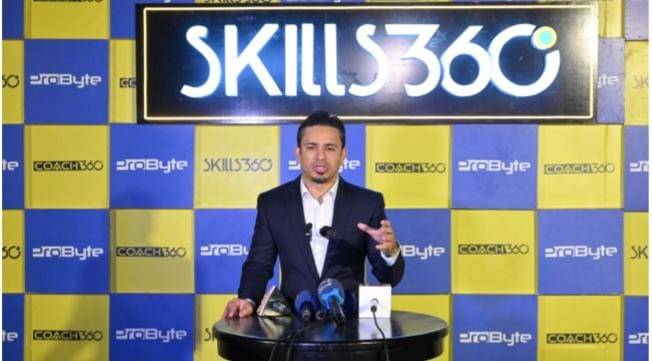Our Terms & Conditions | Our Privacy Policy
Burhan Mirza, IT Tycoon, says tech future starts in classrooms
As Pakistan sets ambitious targets for its IT sector aiming for a $20 billion valuation and $4 billion in exports some of the country’s most respected voices are urging a deep and urgent reflection. For Burhan Mirza, widely considered an IT Tycoon in Pakistan’s digital space, the transformation began far earlier than most imagine.
“Digital literacy doesn’t mean scrolling through social media,” says Mirza.
“It means understanding the system you’re using and how to build something within it. And that has to start from primary school.”
According to him, what’s holding Pakistan back isn’t talent, it’s the gap between education and execution. While global economies like Japan have already made coding a mainstream subject in elementary education, Pakistan still treats digital literacy as an optional afterthought.
“We are not aware enough,” he says. “Children grow up surrounded by tech but not trained to participate in it. They know how to consume content, but not how to create.”
From our talk, it was clear that the problem isn’t just no access; it’s no organized exposure and aim.
While Pakistan’s IT field showed good growth last year with better worker effort and strong export numbers, the lasting nature of this growth depends on if we can support digital skills at the base level. If the current path keeps up, there’s no question that the sky’s the limit.
Mirza believes that we need to teach people how to use the internet productively. People have access to the internet, but they don’t know how to leverage digital tools for building a career, generating income, or contributing positively to the economy.
There is a narrow misconception in how IT is perceived in Pakistan right now. People think that success in digital can only be attained through content creation or software development. This has led to a restriction of ventures into other broader and high-potential areas which include AI, data science, cybersecurity, blockchain and cloud infrastructure.
“I’ve met 22-year-olds who’ve never done an internship. That’s not their fault; it’s the system,” he shares.
“You spend two decades in a cage, and only then are you expected to perform in the real world. That’s not education. That’s a delay.”
One key insight from our discussion was that we can’t place the entire burden on the government or leadership. Every stakeholder has a role to play. For instance, if a company is generating strong revenue through digital services, investing even a portion of that into education or skill development ultimately benefits the company itself through a better-prepared workforce and stronger industry infrastructure.
Another important point Mirza raised is the lack of formal degrees in emerging technologies in Pakistan. While a large portion of successful professionals are self-taught, there’s no institutional framework guiding learners in future technologies. Compared to countries like India or Bangladesh, where even grassroots-level coding bootcamps have government backing, Pakistan’s talent has learned to survive, not thrive.
“Look at how many of our people are self-learners. Now imagine if we gave them a formal structure and scaled it to a national level. The results would be massive.” says burhan.
He also emphasized that people need to feel connected to the digital economy. Awareness efforts shouldn’t just be technical; they should be motivational. “Give people purpose,” he said. “Help them see where they fit in. That’s when real learning begins.”
His ventures reflect this belief. The Coach360, Mirza’s flagship initiative, offering personal and professional development platform focuses on aligning career, mindset, and lifestyle. Under its umbrella, Skills360 was launched to equip individuals with the skills, tools and mindset they need to thrive in a competitive, digital-first world.
He further said, “Give them the tools, yes. But also show them how to use those tools to contribute to the economy, to build careers, and to monetize their skill sets. Awareness is as important as access.”
“We’re racing against ourselves. We’ll get there in two years or ten; that depends on execution. But if we get the education part right, we won’t just catch up; we’ll lead,” Burhan added.
Mirza just doesn’t talk about digital transformation as a buzzword; he sees it as a national necessity. From classrooms to boardrooms, he believes everyone has a stake in building a stronger tech ecosystem.
The conversation wasn’t just a critique; it was a call to action. The tools are within reach. The talent exists. Now, the real question is, can we build an education system that empowers people to lead, not just follow, in the global tech revolution?
Images are for reference only.Images and contents gathered automatic from google or 3rd party sources.All rights on the images and contents are with their legal original owners.



Comments are closed.